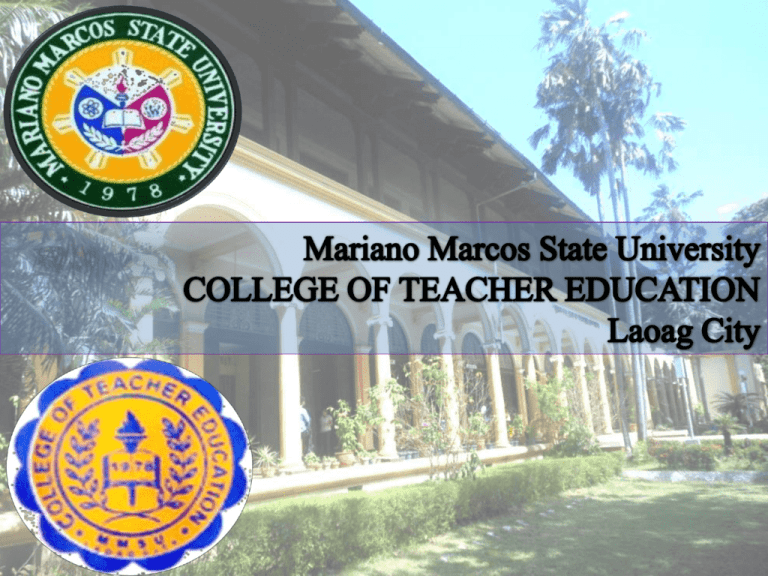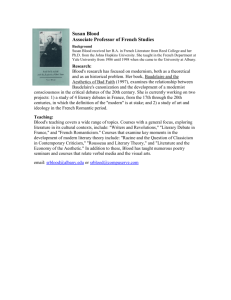The Classicism Trend in the Short Story, The Small Key by Paz
advertisement

The Classicism Trend in the Short Story, The Small Key by Paz Latorena Background of Classicism Classicism is an approach to literature that is guided by admiration of the qualities of formal balance, proportion, decorum, and restraint attributed to the major works of ancient Greek and Roman literature (‘the classics’) in preference to the irregularities of later vernacular literature, and especially (since about 1800) to the artistic liberties proclaimed by Romanticism. The Small Key A Philippine Short Story in English This story is about a Filipino couple living in a rural area and the kind of relationship they had. The wife, Soledad was jealous of the memory of her husband’s first wife who passed away. The husband, Pedro Buhay kept a small key of his late wife’s trunk. His keeping the small key was the start of the conflict. Paz Latorena Poet, Editor, Author and Teacher Latorena was among the foremost writers of the first generation of Filipino English writers, in both literary writing and education. She wrote poetry under the pseudonym, Mina Lys, which, according to Tanlayco, had a “romantic significance”. (January 17, 1908 – October 20 1953) She won the third prize in Jose Garcia Villa’s Roll of Honor for the Best Stories of 1927 for her story, “The Small Key”. She published her poems, “Insight” and “My Last Song”. She earned her master’s and doctorate degree while teaching literature courses in UST. In 1934, her doctoral dissertation, “Philippine Literature in English: Old Voices and New,” received the highest rating of sobresaliente. Classicism Precepts Evident in the Story Precept # 1 Paragraph Justification Classicism has its roots in ancient Greek and Roman literature, philosophy, and art. Classicist believed that the laws of nature could be rationally understood and explained purely by reason. It upholds the intellectual value of literature. (6)“Some of them need darning,” and observing the empty plate, she added, “do you want some more rice?” As Filipino tradition or culture dictates Soledad being the wife, it’s her duty to serve, take care and fix the belongings of her husband during her stay at the house. Precept # 1 Paragraph Justification (7)“No,” hastily, “I am in a hurry to get back. We must finish plowing the south field today because tomorrow is Sunday.” The line says that they should finish their work because the next day is Sunday. According to the general precept no. 1, classicists respect tradition and one of their traditions is to rest or go to church during Sundays. It also relies on reason rather than imagination for it says that they must plow the field. (highlighted sentence attests to that) Precept # 2 Paragraph Justification In literature, classicism values traditional form and structure. It focuses on order, harmony and rationality. (53)Pedro lingered on the porch after the doctor left. He was trying not to be angry with his wife. He hoped it would be just an interlude that could be recalled without bitterness. She would explain sooner or later, she would be repentant, perhaps she would even listen and eventually forgive her, for she was young and he loved her. But somehow he knew that this incident would always remain a shadow in their lives. Literary compositions written in classicism trend adopt Greek or Roman genres of literature, particularly tragedy. The conflict of the short story was not resolved which can be perceived specially on the last line. Pedro left the dilemma unsolved and expected the stain in their relationship to last forever. Therefore, the story was tragic. Precept # 3 The classicists condemned romantic selfexpression as eccentric selfindulgence, in the name of classical sanity and order. Paragraph Justification (3)Pedro Buhay, a prosperous farmer, looked up from his plate and smiled at his wife as she stood framed by the doorway, the sunlight glinting on her dark hair, which was drawn back, without relenting wave, from a rather prominent and austere brow. The husband just looked and smiled at his wife. They did not express their feelings romantically. This only shows that they are classicists for they obviate from exhibiting their feelings and gestures. (highlighted sentence attests to that) Precept #3 Paragraph Justification (18)Soledad nodded. Her eyes followed her husband down the road, noting the fine set of his head and shoulders, the case of his stride. A strange ache rose in her throat. This sentence shows that the wife is very classicist for she just nodded when her husband was talking to her. They didn’t even had they good bye kisses or hugs. Endearments were not practiced. Their emotions were being restrained. Precept # 3 Paragraph Justification (32)During the next half hour Soledad wandered in and out of the rooms in effort to seek escape from her own thoughts and to fight down an overpowering impulse. If Tia Maria would only come and talk to her to divert her thoughts to other channels. Although she was tempted to open the trunk, she didn’t do it at first. She tried to get rid of her malicious thoughts. (highlighted sentence attests to that) Precept #3 Paragraph Justification (39)Tia Maria decided to remain for the night. But it was Pedro who stayed up to watch the sick woman. He was puzzled and worried – more than he cared to admit it. It was true that Soledad did not looked very well early that afternoon. Yet, he thought, the fever was rather sudden. He was afraid it might be a symptom of a serious illness. Even though Pedro felt worried with his wife’s status, he kept himself from admitting it. She showed lighter aura of the situation rather than being panicky, thus this pictures classicism’s restraint of emotion. (highlighted sentence attests to that) Precept #3 Paragraph Justification (53) Pedro lingered on the After all the incidents, a porch after the doctor left. He was trying not to be angry with his wife. He hoped it would be just an interlude that could be recalled without bitterness. She would explain sooner or later, she would be repentant, perhaps she would even listen and eventually forgive her, for she was young and he loved her. But somehow he knew that this incident would always remain a shadow in their lives. common person would feel mad of what happened unlike how Pedro managed his anger. Instead of confronting Soledad of her mischief, he left hoping that Soledad would realize her fault and would just ask apology. He avoided negative emotions and tried to be calm. General Question Guides in Analyzing Literature through the Classicism Trend Structure 1. Does the literary piece strictly follow pattern on form and structure? 2. Is the literary piece logically organized in unity of design and purpose? 3. Does the literary piece follow formal balance, proportion and decorum? 4. Does the literary piece have the elements of order, harmony and rationality? 5. Does the literary piece adhere to recognize standards of form? Characters/ Persona 1. Does the character/persona make decisions based on reason rather than emotion? 2. Does the character/persona behave with restraint emotions towards others or/and the issue? 3. Does the character/persona value and respect authority, culture and tradition? Culture 1. Does the literary piece reflect and/or foster customs and traditions? 2. Does the literary piece imitate and adhere aesthetic values or models embodied in ancient Greek and Roman culture? 3. Does the literary piece show imitations of the ideal life or reality (models for beauty, truth and the good)? Style 1. Is the tone of the writer objective and didactic? 2. Does the writer express his/her ideas more rationally than imagination? 3. Does the writer strive for simplicity and clarity but still reflecting the ideal, enduring and essential? 4. Does the piece impact catharsis or the purging of emotions? Prepared By: Lovely Queenie Rumbaoa Sigrid Domingo Consultant: Prof. Jahnese Asuncion






